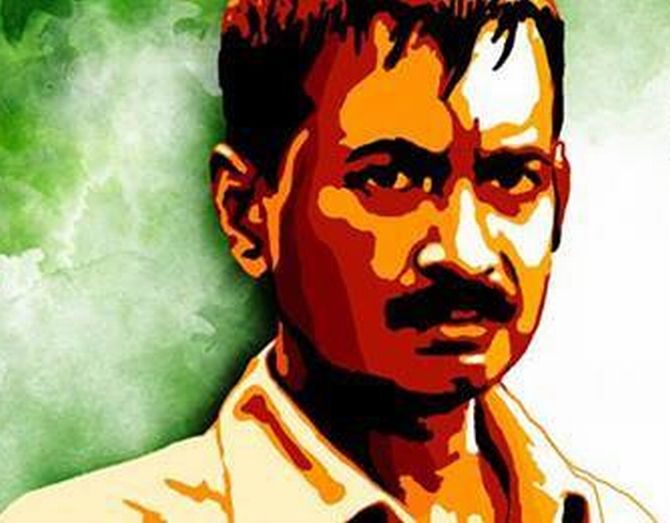 A closer analysis of the Delhi election results suggests that the Aam Aadmi Party, despite a stunning debut, may actually be on shakier ground if another election were held, says Venkat Goli.
A closer analysis of the Delhi election results suggests that the Aam Aadmi Party, despite a stunning debut, may actually be on shakier ground if another election were held, says Venkat Goli.
In a dramatic show of reluctance, the Bharatiya Janata Party and the Aam Aadmi Party had bent over backwards suggesting the other should form the government as neither of them was given a clear mandate by the people of Delhi. The posturing seems to be based on internal calculations of both these parties and their belief that another election to break this impasse would be advantageous to them alone.
The AAP believes the election outcome would dispel any doubts which voters might have had about wasted votes and the party being a viable alternative. The BJP believes that a combination of "buyers' remorse" after a hung assembly, volunteer fatigue in the AAP and its own superior organisational strength will help it do better the next time.
The election results have thrown up interesting pointers that both parties will be looking at to build strategies for the future, given the current impasse in government formation.
Myth of a triangular contest
When looked at closely, most assembly segments witnessed fairly one-sided contests. Approximately 50 per cent (33 out of the total 70 assembly seats) of the total segments were won by one of the parties by more than eight per cent of the total votes compared to its closest rival. In these 33 constituencies, the BJP and the AAP had 15 and 12 such victories, respectively, compared to an astounding six of the total eight Congress victories being won by such a resounding margin.
While the presence of the principal players -- the Congress, the BJP and the AAP (not to discount Mayawati's Bahujan Samaj Party, Nitish Kumar's Janata Dal-United, Vijayakanth's Desiya Murpokku Dravidar Kazhagam and Sharad Pawar's Nationalist Congress Party) -- did make it a multi-cornered fight on paper, it was far from that on the ground. There were only 10 assembly segments out of the total 70 in which the difference between the winner and the third-placed party was less than 10 per cent of the total votes cast.
The drubbing inflicted on the Congress, as a result of its core base abandoning it, led to a two-way contest compared to a triangular one. If another election was to be held, after an indecisive mandate, there is a possibility that some voters from mainstream parties may return to their original fold from the AAP due to "buyer's remorse", thus making it disadvantageous for the AAP.
On the contrary, with the confidence that the AAP would now have among the electorate, more voters could desert mainstream parties giving it a mandate to form the government. While the timing of such an election would be paramount, it may be assumed that the longer the election is put off, the more the AAP would be at a disadvantage, especially if it clashes with the general elections of 2014.
Dead-heat seats
The biggest beneficiary in dead-heat seats has been the AAP. Out of the 12 seats where the difference between the voting percentage of the winner and the second-placed party was less than two per cent the AAP bagged seven, while the BJP bagged three and the Congress bagged only two. In the seven seats that the AAP won with less than two per cent difference, the BJP was placed second in all of them. Even a one per cent swing in votes against the AAP would result in the party losing four seats with its tally coming down to 24 from the current 28.
Smaller canvas
Compared to the large number of seats in which it needs to play defence, the AAP does not have a similar number of seats that have been so closely contested that it can hope to wrest. While the RK Puram, Sultanpur Majra and Rajinder Nagar seats are definitive targets, the party also needs to start looking at other seats where there is a larger difference in percentage of votes. Seats like Bijwasan, Janakpuri, Kalkaji, Karawal Nagar and Matiala, which were won narrowly, also need to be looked at as other parties would also try to widen the map and put AAP on the back foot.
The AAP's rise has been phenomenal and it has challenged conventional politics by turning it on its head. In such a scenario, with new rules of engagement, it is impossible to predict the future. However, only time will tell if the AAP experiment will yield scalable and repeatable results. But, with every passing day and no government in sight, AAP's electoral prospects could take a beating.
Image courtesy: https://www.facebook.com/AamAadmiParty
Venkat Goli is the Founder of Yudofud, a research and strategy think tank.











